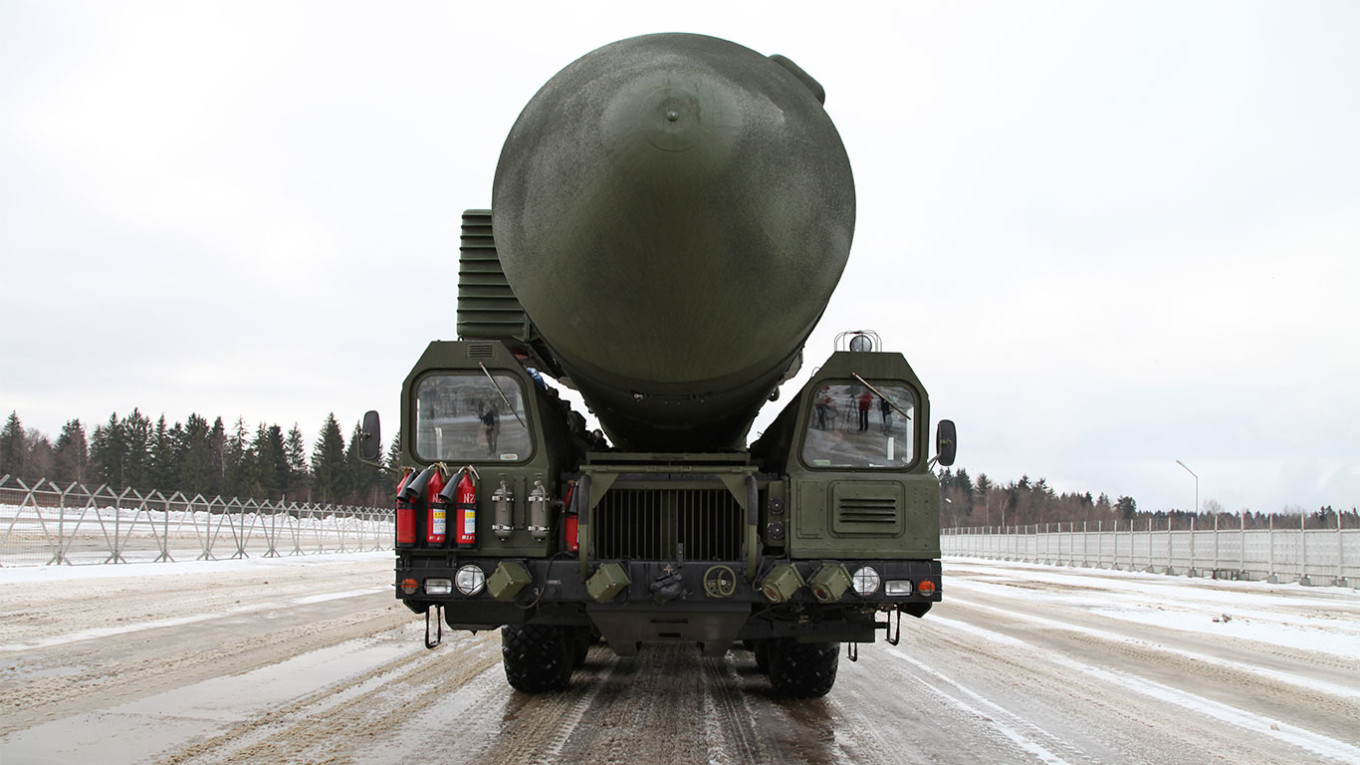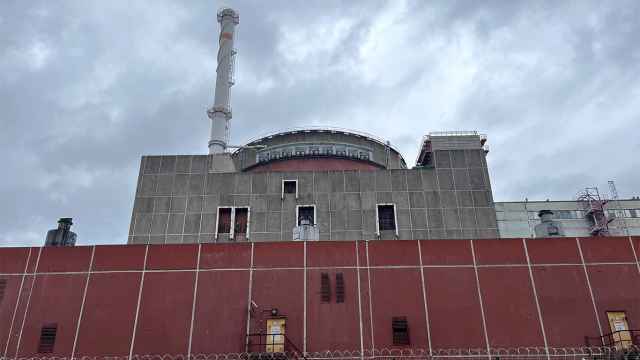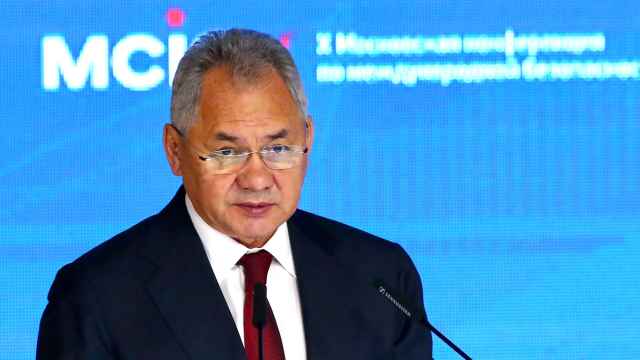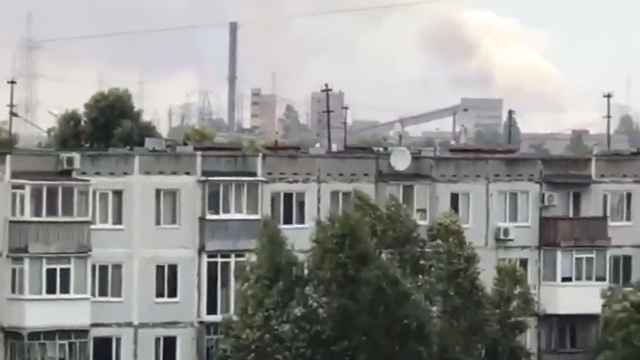After a few frantic weeks early on in the Ukraine war when all parties found their respective red lines, the issue of nuclear weapons faded into the background. However, recent events — the annexation of four Ukrainian regions by Russia and the promise to protect its territorial integrity “by all the means available” — has understandably made people nervous and caused the nuclear problem to resurface. Experts and politicians now openly talk about “Russia’s nuclear threats,” discuss how Russia could use nuclear weapons and contemplate what to do if Russia takes such a momentous step.
The threat of nuclear war should not be taken lightly. However, we should also understand that we are at least several steps away from the point at which that threat will be close to implementation — and that there are things we can do to avoid getting there.
Above all, we should be clear about what kind of threats we are facing. The messaging from Russian officials has been consistent: Russia will defend itself if attacked by the West. Even Putin’s remark about “protecting territorial integrity” was addressed to those who “resort to nuclear blackmail” and raise the specter of using nuclear weapons against Russia. These statements are fully in line with the Russian leadership’s apparent belief that they are involved in an existential struggle with the West. In this grand vision, a strong leader would naturally promise to protect the country by all available means.
Using nuclear weapons against Ukraine would not fit this narrative and, indeed, no Russian official has suggested that Ukraine could be a target. We know, of course, that official statements may not be worth much, but they are not meaningless. It is one thing for a leader to promise to defend his country in a global confrontation; it is quite another for him to reach for nuclear weapons because his army is not performing well on the battlefield. There is considerable distance between these narratives, and we will see a dramatic change of rhetoric when it comes to nuclear weapons before we see any movements that could bring us closer to nuclear use. This has not happened — yet.
Another step that has not been taken is the physical movement of weapons. Nuclear weapons that could conceivably be used in this war are so-called tactical nuclear weapons as well as weapons launched by strategic bombers. In other words, everything but intercontinental ballistic missiles or missiles launched from submarines.
Non-strategic weapons vary in yield, and the type and range of their delivery systems, but they are all similar in one respect — none are normally deployed. There are no Iskander launchers roaming around with nuclear warheads on their missiles and there are no aircraft sitting on runways with nuclear bombs or cruise missiles in their bomb bays. These weapons are in storage, separated from their delivery systems by distance and time.
Of course, there are procedures for deploying these weapons. But initiating them would be another step up the escalation ladder. If the Kremlin decides to take that step it will certainly want to make it visible and, in any event, there is a good chance that any movement of such weapons would be detected. Russia’s nuclear weapons storage sites are known and are being watched very closely. So far, Western intelligence agencies assure us that they have not seen any signs that would indicate deployment.
The one step that is unlikely to be detected is the most important one: the decision to use nuclear weapons. Russian military doctrine is very clear that this decision can only be made by the president. While it would appear Putin has a free hand to order a nuclear strike, the reality is somewhat more complex. There are a number of lines that he would have to cross before he could actually issue such an order.
The first is that Russian military doctrine specifies nuclear weapons can only be used in a case of conventional aggression “putting in danger the very existence of the state.” Of course, it would be unwise to put too much faith in the Kremlin following its own doctrine but, judging by the rhetoric coming out of the Kremlin at the moment, that line still holds. The West can make this line harder to cross by stating openly and clearly that it has no intention of ever putting in danger the existence of Russia itself.
Another factor to consider is the way in which nuclear weapons can be used. Most experts agree that nuclear weapons could achieve few military objectives on the battlefield, especially in this war. That leaves the option of using them in a strategic sense — Hiroshima/Nagasaki-style — to shock Ukraine into surrendering. Assuming that this strategy could work, which is far from certain, to be truly shocking a strike of this kind would have to involve an attack on civilians and lead to mass casualties. Probably tens of thousands, if not hundreds of thousands of people, would be doomed to die.
Anyone contemplating an attack of this kind would not just have to cross a line, but go way beyond it. There is little doubt that such use of nuclear weapons would be universally condemned, and that Russia would quickly find itself in complete isolation.
There is still some room for uncertainty, of course, since the events of the last months have shown very clearly that we cannot exclude anything. And that line may not be far enough away. But we can push it further away, making sure that even the thought of using nuclear weapons in this war is absolutely unacceptable. That is definitely something that politicians, experts, the media, and the public can — and should — do. We are still some steps away from the nuclear abyss and it is within our power to ensure we do not get there.
A Message from The Moscow Times:
Dear readers,
We are facing unprecedented challenges. Russia's Prosecutor General's Office has designated The Moscow Times as an "undesirable" organization, criminalizing our work and putting our staff at risk of prosecution. This follows our earlier unjust labeling as a "foreign agent."
These actions are direct attempts to silence independent journalism in Russia. The authorities claim our work "discredits the decisions of the Russian leadership." We see things differently: we strive to provide accurate, unbiased reporting on Russia.
We, the journalists of The Moscow Times, refuse to be silenced. But to continue our work, we need your help.
Your support, no matter how small, makes a world of difference. If you can, please support us monthly starting from just $2. It's quick to set up, and every contribution makes a significant impact.
By supporting The Moscow Times, you're defending open, independent journalism in the face of repression. Thank you for standing with us.
Remind me later.








